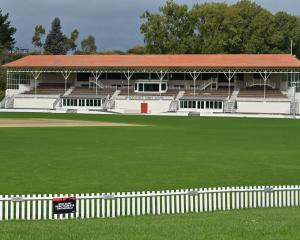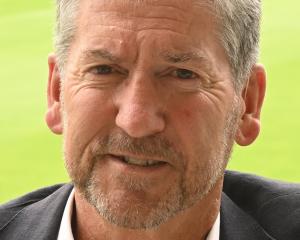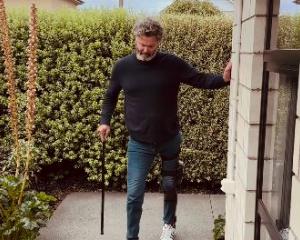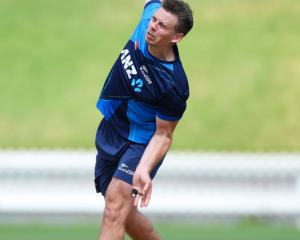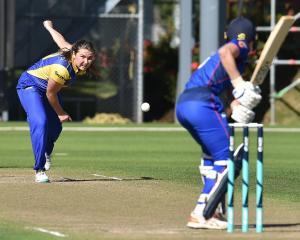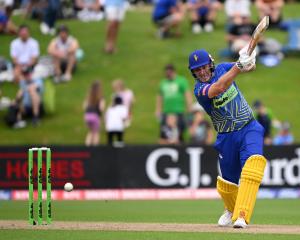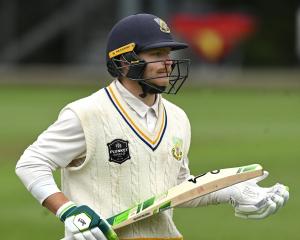That is what life was like for Otago all-rounder Mark Craig.
Two years ago the aggressive right-arm offspinner and useful left-handed batsman had forced his way into the Otago twenty/20 side and played six matches.
The 23-year-old had been picked in the team to play Canterbury in the final at the University Oval, but the match was washed out.
It is unlikely Craig would have been able to take the field.
He had been feeling unwell and listless for some time, but that day he just felt "completely wiped out".
Shortly after the game was abandoned, Craig was taken to hospital.
It was five months before anyone was able to say with any authority what was wrong with him.
Eventually he was diagnosed with chronic fatigue syndrome - an illness which drains energy and leaves the sufferer feeling flat.
"It completely wiped me out and I had to go back to Auckland," Craig said.
"I was home for nine months and probably seven of them I was on the couch or in bed."
The problems started when he got a virus and, combined with a back complaint, he struggled to bounce back.
"The mixture of the two just completely wiped my immune system out," he said.
Diagnosis is usually followed by relief, but not in Craig's case.
He was told there was not much which could be done for chronic fatigue syndrome - the body would heal itself.
That is cold comfort when you are lying on your back feeling exhausted all the time and wondering when you will hold a bat or bowl a ball again.
"It was a long nine months until I found Will Hinchcliff in Auckland," Craig said.
Hinchcliff and his partner, Howard Dell, offer enhanced external counter pulsation (EECP) therapy.
The treatment, which the mainstream medical establishment has not embraced, involves attaching electrodes to the chest to monitor the heart rate, and strapping blood pressure cuffs around the legs.
As the cuffs inflate, they push blood back from the legs to the vital organs.
The therapy is said to improve circulation and help speed up the recovery process.
EECP has some high-profile backers in boxing great Muhammad Ali and basketball star Shaquille O'Neal, and Craig credits the therapy with getting him on the road to recovery.
"I was flat on my back for seven months not doing any exercise and this therapy was providing my exercise.
"So it started from there and then he detoxed me and I slowly came right.
"If I hadn't found him I'd probably still be in Auckland flat on my back.
"He had massive faith in what he was doing was working, whereas every other doctor I saw put me in the too-hard basket.
"He was the first person who said, `No, we can get rid of this for you'."
An hour's treatment is said to be akin to running 35km, and Craig had the treatment for about five months.
Once he was well he returned to Dunedin and university and played club cricket for Albion last season.
He linked up with the Otago squad in November and worked hard to force his way back into the starting XI.
He completed his comeback with an impressive first-class debut last week.
There were no signs of weariness, with Craig bowling 27 overs on the last day to help his side secure a 116-run win against Central Districts on a flat deck in Napier.
He took three for 87 and picked up the crucial wicket of former international Mathew Sinclair.
"The longer I bowled the more comfortable I felt," Craig said of the step up from club to first-class cricket.
"The margin for error is a lot less.
"To start with I was probably too impatient, seeing one ball turn and trying to do it again instead of concentrating on line and length and letting the wicket do the work."
The illness, Craig said, was behind him, although he still had his off days and needed to make sure he ate well, got plenty of sleep and exercised regularly.
But he felt positive about his future and wanted to grasp every cricketing opportunity which came his way and planne to work hard over the winter to push his claims for a provincial contract.


